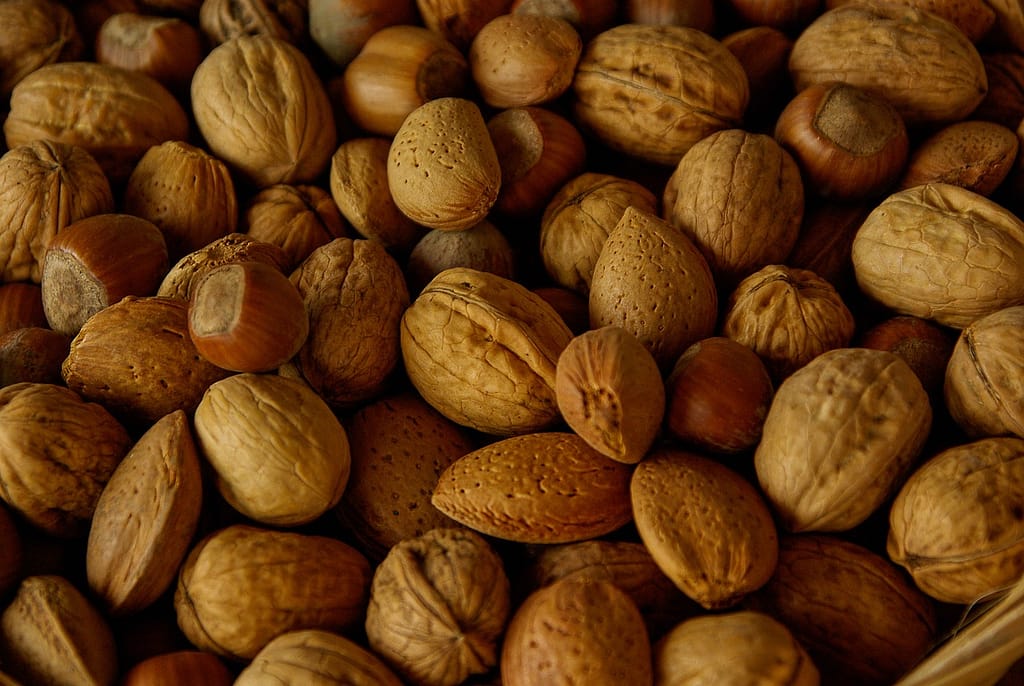Looking to incorporate more plant-based protein into your diet? Look no further! In this article, we will explore the top 10 vegan protein sources that are not only delicious but also highly nutritious. Whether you’re a seasoned vegan or simply looking to add more variety to your meals, these plant-based options will undoubtedly satisfy your protein needs. So, let’s dive in and discover the abundance of protein-rich foods that the vegan world has to offer!
If you’re following a vegan diet, getting enough protein might be a concern for you. But fear not! There are plenty of delicious and nutritious vegan protein sources available to help you meet your daily requirements. In this article, we will explore the top 10 vegan protein sources to keep you feeling healthy and strong.
Beans and legumes are an excellent source of vegan protein. They are not only packed with protein but also high in fiber, which helps keep you feeling full and satisfied. Some of the most popular beans and legumes for protein include chickpeas, black beans, lentils, and kidney beans. Incorporating these into your diet through dishes like chili, salads, and soups can provide a substantial protein boost while adding variety to your meals.
Tofu and tempeh are tofu products made from soybeans and are incredibly versatile when it comes to vegan protein sources. They are a staple in many vegan diets due to their high protein content and ability to absorb flavors and spices. Tofu can be cooked in various ways, such as stir-frying and grilling, while tempeh can be marinated and then baked or fried. These plant-based proteins are not only delicious but also rich in essential amino acids necessary for muscle growth and repair.

Lentils are another fantastic vegan protein source. They are a member of the legume family and are known for their high protein and fiber content. What’s great about lentils is their versatility and the many ways they can be used in recipes. They can be added to soups, salads, curries, and even used as a meat substitute in dishes like lentil burgers. Lentils are not only an excellent source of protein but also rich in iron, folate, and other essential nutrients.
Quinoa is a popular whole grain that is also considered a complete protein. This means that it contains all nine essential amino acids that your body needs but cannot produce on its own. Quinoa is incredibly versatile and serves as a great base for salads, stir-fries, and even desserts. As a bonus, quinoa also provides a good amount of fiber and healthy fats like omega-3 fatty acids.

Chia seeds may be tiny, but they pack a powerful punch when it comes to vegan protein sources. These seeds are not only a great source of protein but also contain omega-3 fatty acids, antioxidants, and fiber. They can be added to smoothies, overnight oats, puddings, or used as an egg substitute in vegan baking. Chia seeds are easy to incorporate into your diet and provide a sustained release of energy due to their high fiber content.
Hemp seeds are another excellent choice for vegan protein. They are rich in omega-3 and omega-6 fatty acids, making them beneficial for heart health. Hemp seeds can be added to smoothies, sprinkled on salads or yogurt, and even used in baking recipes. They have a nutty flavor and are a great option for those looking to add more plant-based protein to their diet.
Despite its name, buckwheat is not related to wheat and is actually a gluten-free seed. It is an excellent vegan protein source, especially for those with dietary restrictions. Buckwheat is commonly used to make gluten-free flour, which can be used in a variety of recipes, including pancakes, bread, and muffins. Additionally, buckwheat can be cooked and enjoyed as a side dish or added to stir-fries and salads.
Spirulina is a type of blue-green algae often consumed in powdered form. It is incredibly nutrient-dense and an excellent source of vegan protein. Just one tablespoon of spirulina provides around 4 grams of protein along with vitamins, minerals, and antioxidants. Spirulina can be added to smoothies, energy bars, or even sprinkled on top of salads for an extra nutritional boost.
Seitan, also known as wheat gluten, is a protein-rich food made from gluten. It has a texture similar to meat and is often used as a meat substitute in vegan dishes. Seitan can be grilled, sautéed, or used in stir-fries, sandwiches, and stews. It is a popular choice among vegans and vegetarians due to its high protein content and versatility in cooking.
Pea protein has gained popularity in recent years as a vegan protein source. Made from yellow split peas, it is a high-quality protein that is also easily digestible. Pea protein powder can be added to smoothies, shakes, or used in baking recipes. It provides all the essential amino acids your body needs and is suitable for those with allergies or sensitivities to other plant-based proteins.
In conclusion, following a vegan diet doesn’t mean you have to compromise on protein intake. With these top 10 vegan protein sources, you can easily meet your protein requirements while enjoying a variety of nutritious and delicious meals. So go ahead and explore these plant-based protein options to support your overall health and well-being.
This post contains affiliate links. I will earn a commission if you buy through my link.
Looking to incorporate more plant-based protein into your diet? Look no further! In this article, we will explore the top 10 vegan protein sources that are not only delicious but also highly nutritious. Whether you’re a seasoned vegan or simply looking to add more variety to your meals, these plant-based options will undoubtedly satisfy your protein needs. So, let’s dive in and discover the abundance of protein-rich foods that the vegan world has to offer!
If you’re following a vegan diet, getting enough protein might be a concern for you. But fear not! There are plenty of delicious and nutritious vegan protein sources available to help you meet your daily requirements. In this article, we will explore the top 10 vegan protein sources to keep you feeling healthy and strong.
Beans and legumes are an excellent source of vegan protein. They are not only packed with protein but also high in fiber, which helps keep you feeling full and satisfied. Some of the most popular beans and legumes for protein include chickpeas, black beans, lentils, and kidney beans. Incorporating these into your diet through dishes like chili, salads, and soups can provide a substantial protein boost while adding variety to your meals.
Tofu and tempeh are tofu products made from soybeans and are incredibly versatile when it comes to vegan protein sources. They are a staple in many vegan diets due to their high protein content and ability to absorb flavors and spices. Tofu can be cooked in various ways, such as stir-frying and grilling, while tempeh can be marinated and then baked or fried. These plant-based proteins are not only delicious but also rich in essential amino acids necessary for muscle growth and repair.

Lentils are another fantastic vegan protein source. They are a member of the legume family and are known for their high protein and fiber content. What’s great about lentils is their versatility and the many ways they can be used in recipes. They can be added to soups, salads, curries, and even used as a meat substitute in dishes like lentil burgers. Lentils are not only an excellent source of protein but also rich in iron, folate, and other essential nutrients.
Quinoa is a popular whole grain that is also considered a complete protein. This means that it contains all nine essential amino acids that your body needs but cannot produce on its own. Quinoa is incredibly versatile and serves as a great base for salads, stir-fries, and even desserts. As a bonus, quinoa also provides a good amount of fiber and healthy fats like omega-3 fatty acids.

Chia seeds may be tiny, but they pack a powerful punch when it comes to vegan protein sources. These seeds are not only a great source of protein but also contain omega-3 fatty acids, antioxidants, and fiber. They can be added to smoothies, overnight oats, puddings, or used as an egg substitute in vegan baking. Chia seeds are easy to incorporate into your diet and provide a sustained release of energy due to their high fiber content.
Hemp seeds are another excellent choice for vegan protein. They are rich in omega-3 and omega-6 fatty acids, making them beneficial for heart health. Hemp seeds can be added to smoothies, sprinkled on salads or yogurt, and even used in baking recipes. They have a nutty flavor and are a great option for those looking to add more plant-based protein to their diet.
Despite its name, buckwheat is not related to wheat and is actually a gluten-free seed. It is an excellent vegan protein source, especially for those with dietary restrictions. Buckwheat is commonly used to make gluten-free flour, which can be used in a variety of recipes, including pancakes, bread, and muffins. Additionally, buckwheat can be cooked and enjoyed as a side dish or added to stir-fries and salads.
Spirulina is a type of blue-green algae often consumed in powdered form. It is incredibly nutrient-dense and an excellent source of vegan protein. Just one tablespoon of spirulina provides around 4 grams of protein along with vitamins, minerals, and antioxidants. Spirulina can be added to smoothies, energy bars, or even sprinkled on top of salads for an extra nutritional boost.
Seitan, also known as wheat gluten, is a protein-rich food made from gluten. It has a texture similar to meat and is often used as a meat substitute in vegan dishes. Seitan can be grilled, sautéed, or used in stir-fries, sandwiches, and stews. It is a popular choice among vegans and vegetarians due to its high protein content and versatility in cooking.
Pea protein has gained popularity in recent years as a vegan protein source. Made from yellow split peas, it is a high-quality protein that is also easily digestible. Pea protein powder can be added to smoothies, shakes, or used in baking recipes. It provides all the essential amino acids your body needs and is suitable for those with allergies or sensitivities to other plant-based proteins.
In conclusion, following a vegan diet doesn’t mean you have to compromise on protein intake. With these top 10 vegan protein sources, you can easily meet your protein requirements while enjoying a variety of nutritious and delicious meals. So go ahead and explore these plant-based protein options to support your overall health and well-being.
This post contains affiliate links. I will earn a commission if you buy through my link.
